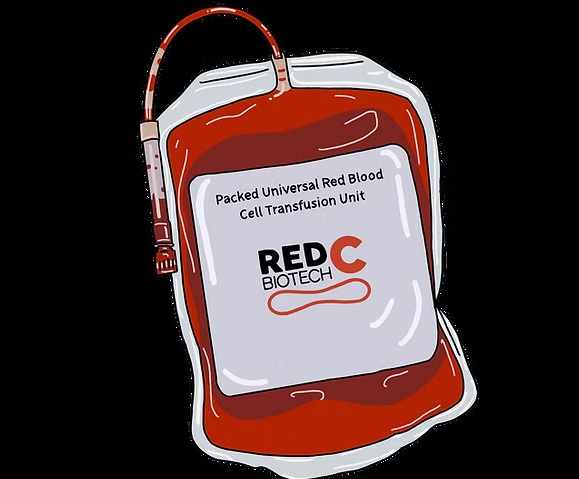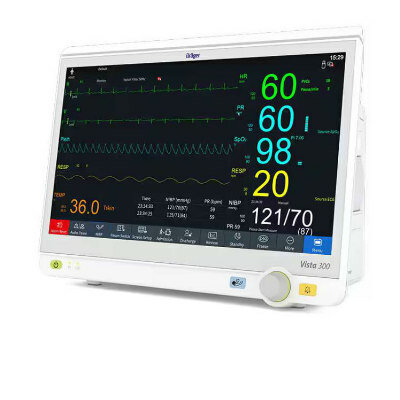Lab-Produced Universal Red Blood Cells to Enable Unlimited Transfusions
|
By HospiMedica International staff writers Posted on 31 Dec 2024 |

Red blood cell transfusions play a crucial role in a variety of medical treatments, including trauma care, surgeries, childbirth complications such as postpartum hemorrhage (PPH), treatment for chronic anemia, and cancer therapies. Every year, nearly 120 million units of red blood cells are donated worldwide, but a significant shortage of approximately 100 million units persists. The process of collecting, testing, screening, storing, and delivering donor blood is complex and requires careful management. This includes ensuring the safety of the donated blood, proper matching, and vigilance against both existing and emerging diseases to prevent transmission of harmful elements from donors. The complexity of the blood supply chain, along with the need for extensive testing and continuous handling, drives up the cost of blood units. There is a global need for a safer, cleaner, more accessible, and cost-effective alternative that eliminates the reliance on donors. Now, lab-grown, donor-free universal red blood cells, derived from human stem cells, could provide a sustainable solution for life-saving transfusions and advanced medical treatments.
RedC Biotech (Bnei Zion, Israel) is developing a method to produce high-quality, synchronized red blood cell cultures using advanced materials. Similar to the approach employed by cultured meat startups that convert animal cells into meat products, RedC's process begins with a stem cell donation from a "universal donor" with a special variant of the O-negative blood type, which can be transfused to most patients. Stem cells, capable of continuous multiplication and differentiation, can be reprogrammed to create a master cell bank. Samples from this bank are then used to grow batches of universal red blood cells in bioreactors over the course of about a month. These mature, purified cells are then shipped to hospitals, RedC’s primary customers.
The universal red blood cells produced by RedC Biotech will be compatible with nearly every patient and offer the same effectiveness as traditional red blood cell transfusions. Pathogen-free, consistent, and free of unwanted blood components, this product will eliminate the need for blood donors, volunteers, and the seasonal shortages that often occur. Lab-produced red blood cells will maintain uniform quality without viruses or other contaminants, which will also reduce the need for additional testing in hospitals. Furthermore, this blood can be produced on-demand, based on forecasted need. RedC’s large-scale bioreactors will enable mass production to meet global demands. If successful, this innovation will allow hospitals to purchase blood as a pharmaceutical product, eliminating the dependence on blood donations. Future possibilities also include using these lab-grown red blood cells as a platform for drug delivery.
Related Links:
RedC Biotech
Latest Critical Care News
- Novel Cannula Delivery System Enables Targeted Delivery of Imaging Agents and Drugs
- Ingestible Smart Capsule for Chemical Sensing in the Gut Moves Closer to Market
- Novel Intrabronchial Method Delivers Cell Therapies in Critically Ill Patients on External Lung Support
- Generative AI Technology Detects Heart Disease Earlier Than Conventional Methods
- Wearable Technology Predicts Cardiovascular Risk by Continuously Monitoring Heart Rate Recovery
- Wearable Health Monitoring Device Measures Gases Emitted from and Absorbed by Skin
- Groundbreaking Technology Rapidly Detects Airborne Influenza Viruses
- Handheld Device Could Transform Heart Disease Screening
- Flexible Semi-Autonomous Robot Could Deliver Medicine Inside Body

- Neurorestorative Treatment Strategies Hold Promise for Most Severe Forms of Epilepsy
- Gene Discovery Could Help Grow New Heart Arteries
- Study Discovers Invisible Transmission of Common Hospital-Associated Infection
- Non-Invasive Neuro-Ophthalmology Techniques Could Detect Brain Tumors Earlier
- Mass Manufactured Nanoparticles to Deliver Cancer Drugs Directly to Tumors
- World’s Smallest Pacemaker Fits Inside Syringe Tip

- AI-Powered, Internet-Connected Medical Devices to Revolutionize Healthcare, Finds Study
Channels
Surgical Techniques
view channel
Intravascular Imaging for Guiding Stent Implantation Ensures Safer Stenting Procedures
Patients diagnosed with coronary artery disease, which is caused by plaque accumulation within the arteries leading to chest pain, shortness of breath, and potential heart attacks, frequently undergo percutaneous... Read more
World's First AI Surgical Guidance Platform Allows Surgeons to Measure Success in Real-Time
Surgeons have always faced challenges in measuring their progress toward surgical goals during procedures. Traditionally, obtaining measurements required stepping out of the sterile environment to perform... Read morePatient Care
view channel
Portable Biosensor Platform to Reduce Hospital-Acquired Infections
Approximately 4 million patients in the European Union acquire healthcare-associated infections (HAIs) or nosocomial infections each year, with around 37,000 deaths directly resulting from these infections,... Read moreFirst-Of-Its-Kind Portable Germicidal Light Technology Disinfects High-Touch Clinical Surfaces in Seconds
Reducing healthcare-acquired infections (HAIs) remains a pressing issue within global healthcare systems. In the United States alone, 1.7 million patients contract HAIs annually, leading to approximately... Read more
Surgical Capacity Optimization Solution Helps Hospitals Boost OR Utilization
An innovative solution has the capability to transform surgical capacity utilization by targeting the root cause of surgical block time inefficiencies. Fujitsu Limited’s (Tokyo, Japan) Surgical Capacity... Read more
Game-Changing Innovation in Surgical Instrument Sterilization Significantly Improves OR Throughput
A groundbreaking innovation enables hospitals to significantly improve instrument processing time and throughput in operating rooms (ORs) and sterile processing departments. Turbett Surgical, Inc.... Read moreHealth IT
view channel
Printable Molecule-Selective Nanoparticles Enable Mass Production of Wearable Biosensors
The future of medicine is likely to focus on the personalization of healthcare—understanding exactly what an individual requires and delivering the appropriate combination of nutrients, metabolites, and... Read more
Smartwatches Could Detect Congestive Heart Failure
Diagnosing congestive heart failure (CHF) typically requires expensive and time-consuming imaging techniques like echocardiography, also known as cardiac ultrasound. Previously, detecting CHF by analyzing... Read moreBusiness
view channel
Expanded Collaboration to Transform OR Technology Through AI and Automation
The expansion of an existing collaboration between three leading companies aims to develop artificial intelligence (AI)-driven solutions for smart operating rooms with sophisticated monitoring and automation.... Read more

















